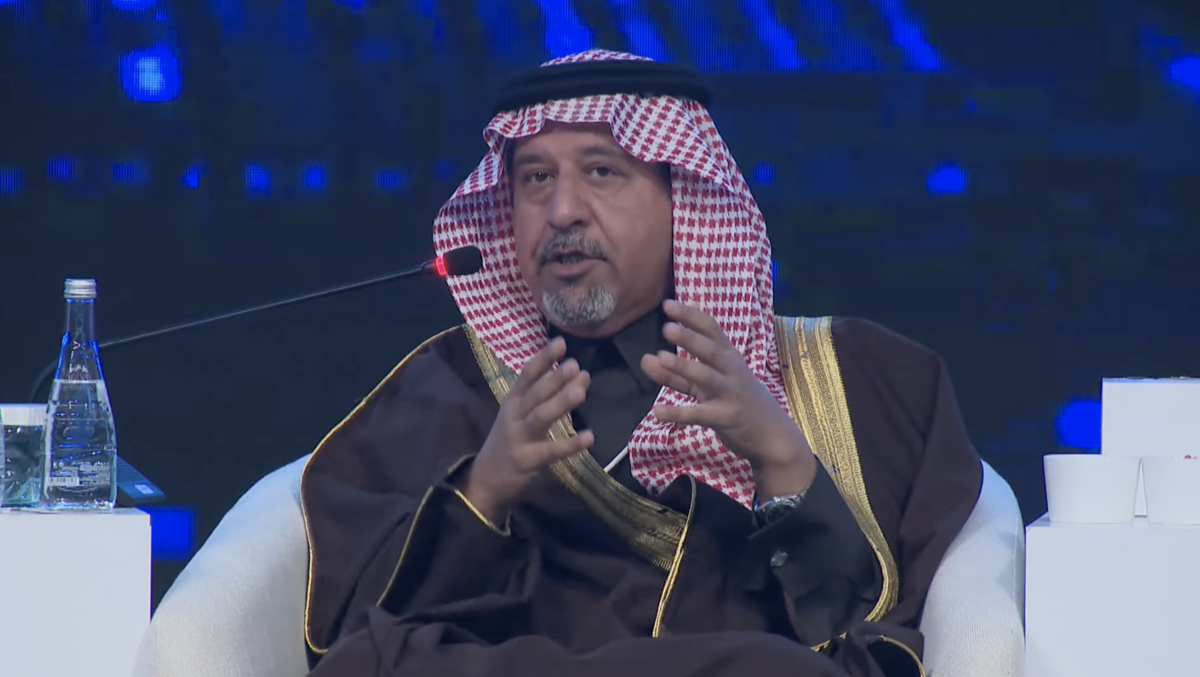Saudi Arabia spotlights private sector’s role in driving logistics transformation
RIYADH: Saudi Arabia’s private sector is playing a pivotal role in driving the Kingdom’s transformation into a global logistics hub, a top official said.
Speaking at the sixth edition of the Supply Chain And Logistics Conference in Riyadh, Rumaih Al-Rumaih, vice minister of transport and logistics services and president of the Transport General Authority, highlighted the critical contributions from businesses.
“The main player in achieving anything in the logistics sector is the private sector. Truly, the private sector is the one delivering results. The government’s role is to enable,” Al-Rumaih said.
He added: “If we visit the exhibition, we’ll see the private sector at the forefront, not the government because they are the real achievers.”
Saudi Arabia is seeking to become a global logistics hub by leveraging its strategic location at the crossroads of Asia, Africa, and Europe. Through its Vision 2030 plan, the Kingdom is investing in transport, infrastructure, and technology to reduce oil dependence and modernize supply chains.
Al-Rumaih credited the economic diversification initiative for providing a structured roadmap, stating: “This did not happen by chance; it was a clear vision and target. The Kingdom’s strategic location connects three continents, making it a natural global logistics hub.”
He also emphasized the private sector’s role in forging strategic partnerships with major global players, saying: “The private sector responded to Vision 2030 by growing rapidly and forming partnerships with major players like CEVA, DSV, and DB Schenker.”
Building infrastructure
Bader Al-Dulami, vice minister of transport and logistics services for road affairs, underscored the importance of infrastructure in enabling success.
“The road sector is undoubtedly one of the most significant enablers of the logistics sector. There is no logistics sector without roads that connect various destinations,” Al-Dulami said.
He added: “There is no successful logistics sector without a network of safe, high-quality roads that can accommodate the increasing demand in this sector.”

Saudi Arabia currently ranks first globally for road connectivity, a milestone Al-Dulami attributed to sustained investment and strategic planning.
“Through joint efforts, we have managed to reduce accident rates significantly. From 2016 to the present, the accident rate has decreased by more than half — a 50 percent reduction,” he said.
The vice minister continued: “In 2016, there were 28 deaths per 100,000 people; today, it is less than 13 deaths per 100,000. However, our journey is far from over, as we aim to achieve the target of reducing this number to five by 2030”
Road maintenance
Al-Dulami announced plans for phase two of performance-based maintenance contracts, which will incorporate advanced technologies to enhance road sustainability.
“The private sector will play a key role, especially in the operation and maintenance of roads. By the end of this month, we will launch phase two of performance-based maintenance contracts,” he said.
“These contracts will incorporate a wide range of modern technologies that will be applied to roads. Many privatization projects have also been initiated,” Al-Dulami added.
He emphasized the importance of collaboration with the private sector, describing it as a reliable and dynamic partner.
“The private sector is a true partner that communicates its needs to us. We are not rigid when it comes to making changes that could benefit this sector,” Al-Dulami said.
He continued: “On the contrary, we are extremely agile, and what you see today in terms of change and development is a result of this openness to everything new and everything that contributes to advancing this sector.”
Ambitious goals
Concluding the session, Al-Rumaih reaffirmed the Kingdom’s ambitious goals.
“We will not stop here. Our aspirations are sky-high, and the journey to position Saudi Arabia as the top global logistics hub continues,” he said.
The two-day Supply Chain And Logistics Conference brought together industry leaders, government officials, and stakeholders to showcase Saudi Arabia’s achievements and explore further opportunities for public-private collaboration in the logistics sector.
In his keynote speech on the conference’s second day, Ahmed Al-Hassan, assistant minister of transport and logistics services, highlighted the ministry’s expanded role.
“The ministry has transitioned from executing projects to supervising strategies that align with national goals and enhance global competitiveness,” he said.
Al-Hassan praised initiatives like the Global Logistics Forum – held in Riyadh in October – describing it as a key platform for attracting international investments and strengthening Saudi Arabia’s role as a leader in the sector.
































